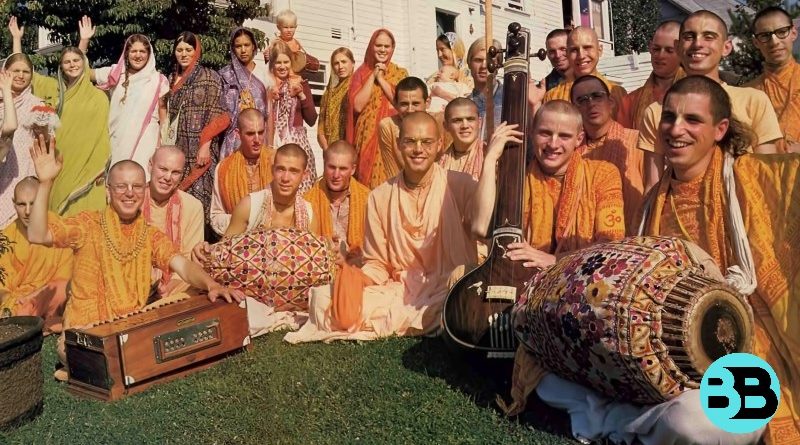ISKCON: The Global Spiritual Movement of Krishna Consciousness
ISKCON (International Society for Krishna Consciousness), also known as the Hare Krishna movement, is a global religious organization founded in 1966 by A.C. Bhaktivedanta Swami Prabhupada. With its roots in the ancient Vedic scriptures of India, ISKCON promotes the teachings and practices of bhakti-yoga, focusing on the worship of Lord Krishna as the supreme personality of Godhead.
Introduction to ISKCON
The International Society for Krishna Consciousness, commonly known as ISKCON or the Hare Krishna movement, this is a worldwide spiritual organization dedicated to spreading the teachings of Lord Krishna. Founded by A.C. Bhaktivedanta Swami Prabhupada, ISKCON aims to promote the principles of devotional service (bhakti-yoga) as taught in the ancient Vedic scriptures of India.
Historical Background
ISKCON traces its origins back to the 16th-century saint and scholar, Lord Chaitanya Mahaprabhu, who popularized the chanting of the Hare Krishna mantra as a means of spiritual enlightenment. In the 20th century, Bhaktivedanta Swami Prabhupada, a disciple in the line of Lord Chaitanya, embarked on a mission to introduce Vedic teachings and Krishna consciousness to the Western world. He established ISKCON in New York City in 1966, and the movement rapidly gained followers and expanded globally.
Philosophy and Beliefs
ISKCON’s philosophy is based on the teachings of the Bhagavad Gita, the Upanishads, and other Vedic scriptures. Central to its beliefs is the understanding that each living being is an eternal spiritual entity, distinct from the material body, and that the ultimate goal of life is to develop a loving relationship with God, Krishna. ISKCON emphasizes the practice of devotional service, which involves engaging in activities such as chanting the Hare Krishna mantra, studying scriptures, engaging in deity worship, and sharing spiritual knowledge.
Practices and Rituals
ISKCON followers engage in various practices and rituals to deepen their spiritual connection with Krishna. The most prominent practice is sankirtan, the congregational chanting of the Hare Krishna mantra. Devotees believe that by chanting the mantra, they purify their consciousness and develop a direct connection with the divine. Another significant practice is deity worship, where devotees meticulously care for and worship the deity forms of Krishna in the temples.
Other practices include studying sacred texts, particularly the Bhagavad Gita and the Srimad Bhagavatam, attending spiritual discourses and lectures, participating in festivals, and observing a vegetarian diet. The practice of prasadam, sanctified vegetarian food offered to Krishna, is also an integral part of ISKCON’s lifestyle.
Community and Social Engagement
ISKCON communities serve as centers for spiritual practice and education. Devotees live in close-knit communities where they share a common goal of practicing and spreading Krishna consciousness. These communities often have temples, schools, and vegetarian restaurants that provide spiritual services, education, and welfare programs.
ISKCON is also involved in numerous social welfare activities. The organization runs food distribution programs, providing free meals to the needy, and supports various charitable initiatives, including education, healthcare, and disaster relief. Additionally, ISKCON promotes environmental sustainability and advocates for vegetarianism as a means to reduce harm to animals and the planet.
ISKCON’s Global Impact
Since its inception, ISKCON has had a significant global impact. The movement has established hundreds of temples worldwide and has attracted millions of followers from diverse cultural backgrounds. ISKCON’s spiritual teachings and practices have influenced individuals, communities, and even academic circles, leading to a greater understanding and appreciation of Vedic philosophy and culture.
ISKCON’s contributions in the field of education have resulted in the establishment of schools, colleges, and universities that integrate spiritual teachings with academic education. The organization’s publishing efforts have made the Vedic scriptures and other related literature more accessible to a global audience.
Furthermore, ISKCON’s emphasis on spirituality, compassion, and social service has inspired countless individuals to lead more meaningful lives and contribute positively to society. The movement’s outreach programs, festivals, and cultural events have played a significant role in fostering interfaith dialogue and promoting a greater understanding of Indian spirituality.
Challenges and Criticisms
Like any religious organization, ISKCON has faced challenges and criticisms. Some critics have raised concerns about the movement’s hierarchical structure and the authority of its leadership. Others have criticized ISKCON’s conservative stance on social issues, such as gender roles and sexuality. Additionally, ISKCON has faced controversies related to the behavior of certain individuals within the movement.
ISKCON has taken steps to address these challenges, implementing measures to ensure accountability and transparency within its leadership. The organization has also promoted gender equality and encouraged the active participation of women in various roles within the movement.
Conclusion
ISKCON, the International Society for Krishna Consciousness, has emerged as a global spiritual movement with millions of followers worldwide. With its emphasis on devotion, community, and social service, ISKCON has made significant contributions to the promotion of Vedic philosophy and culture. Through its practices, rituals, and outreach programs, the movement continues to inspire individuals to cultivate a deeper understanding of their spiritual identities and develop a loving relationship with Lord Krishna. Despite the challenges it has faced, ISKCON remains a vibrant and influential force in the modern spiritual landscape, bridging cultures, and fostering harmony among diverse communities.




